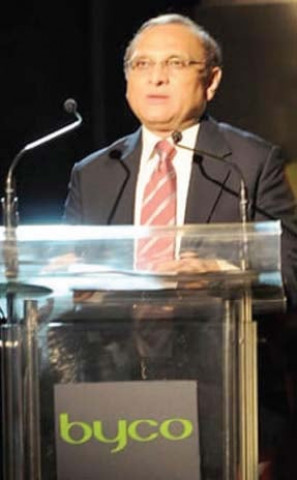Liberal solutions to end the power crisis
Policy has focussed on investment, it needs to focus on the consumer.

In Pakistan, as elsewhere in the world, reforms in the energy sector have been equated with incentives for the IPPs on the one hand and removal of all subsidies for all income segments and for all types of users on the other hand. Because of negative political implications, these factors have also created wrong perceptions about the market friendly reforms.
A true and comprehensive liberal framework is based on the principles of transparency, rule of law and targeted subsidies. Liberalism is not insensitive to the needs of the poor people. It is certainly against creating price distortions and giving wrong signals to the market by signalling above normal and state guaranteed rates of returns. In the next part of this article, we will see how that can be achieved.
Wapda does maintain a cascading tariff, which is built on the idea of slabs for various levels of consumption. Thus a low income household is assumed to use less energy and is billed at a lower rate than the consumer falling under a higher consumption slab. This is of course not a means-tested method to assist low income families but we find it as a fairly reliable proxy for identification of low income households. However, the subsidies are offered to all and sundry without any regard for the consumption slab, which creates distortions in the price levels. Ultimately, just in the case of IPPs, WAPDA ends up paying the producers a pre agreed tariff from the tax payers’ money regardless of whatever the consumers actually pay.
Policy recommendations
The policy prevailing all over the world is to charge a lower tariff to the industrial and commercial consumers to increase productivity, leading to overall economic growth and higher tax revenue for the Government. Moreover, volume (bulk utilisation) results in economies of scale for the power producers and generates higher revenues against reduced costs of distribution.
There is no competition at the level of distribution. Unless all distribution companies are made responsible for their finances and allowed to function independently, it would not be possible to bring in efficiency in the power sector because inefficient DISCOs in Quetta, Hyderabad, Peshawar, tribal areas and Multan are being subsidised by some profit making DISCOs in Lahore, Islamabad, Faisalabad and Gujranwala. Therefore we should privatise the DISCOs and stop cross-subsidising the more inefficiently organised distribution companies, a policy that unnecessarily penalises consumers meeting their obligations regularly.
The cross-subsidy across industrial and commercial consumers needs to be eliminated.
Quality-of-service standards are developed but they are applied selectively. For competitive performance, Nepra should develop these standards at all levels of energy- from generation to distribution. While the consumers’ perception cannot be gauged on the quality of generation, this can certainly be measured on the quality of distribution and troubleshooting/complaints redress in the case of distribution.
The power purchasers should be allowed to purchase electricity directly from the generator instead through the NTDC. This would relieve the NTDC from unnecessary debt accumulation on behalf of non-paying customers, which has caused the problem of circular debt.
If the energy policy does not ensure level playing field for domestic, largely public sector companies, and international, all private sector companies, then the foreign investment is not likely. For instance, the penalty imposed on IPPs for generating less than their contractual obligations is $1000 per each megawatt, which is less than the contractual limit. No such penalties are imposed on the generating plants managed by WAPDA. Thus the energy policy is discriminatory in character in terms of its treatment to domestic and international players and unnecessarily offers protection to domestic players.
Privatisation, as everyone should recognise, encourages efficiency, transfer of technology, foreign capital investment and higher tax revenue, in addition to generating higher employment opportunities for both skilled and unskilled jobless workers of the country. However privatisation should be seen as a means to achieve the end of fair play and open competition. Therefore an enabling environment must ensure level playing field for all players irrespective of their origin. And thus the energy policy thrust should be on promoting and protecting good and healthy competition instead of competitors.
The writer is an economics consultant and Director Programme and Development at the Alternate Solutions Institute, Lahore.
Published in The Express Tribune, May 16th, 2011.



















COMMENTS
Comments are moderated and generally will be posted if they are on-topic and not abusive.
For more information, please see our Comments FAQ